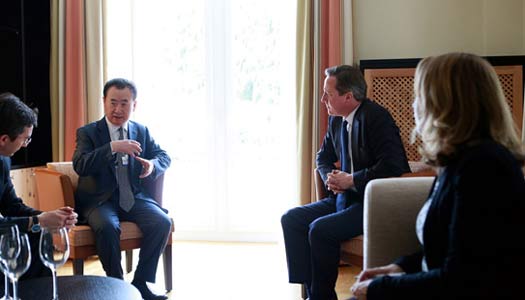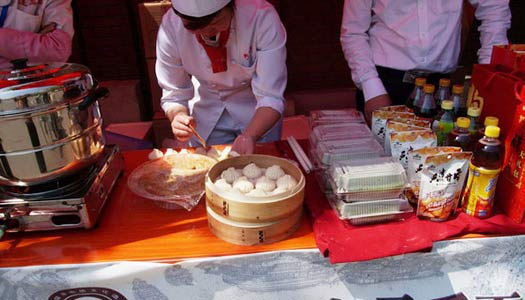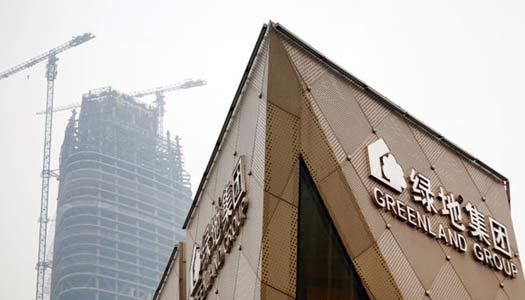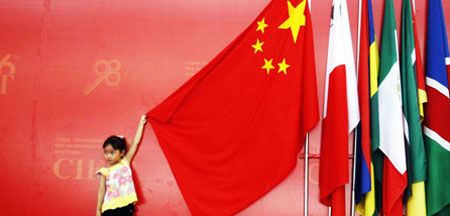Sany stranded overseas
Updated: 2013-08-12 14:44It was the first time a US court heard a case against the US president and CFIUS, which, in some way, is a positive development. "First, the case reminded the US Government that the asset rights and interests of Chinese companies cannot be trampled at will," said Mei Xinyu, a research fellow at the Chinese Academy of International Trade and Economic Cooperation. "Second, it would have an effect on talks of China's investment protection treaties, and strengthen Chinese companies' awareness to safeguard their overseas assets."
Similar cases
This is not the first time Chinese companies have been accused of "threatening US national security." In November 2011, Chinese telecom companies Huawei and ZTE were investigated by the US Government on national security grounds. A report released by the US House of Representatives' Committee on Intelligence in October 2012 suggested that Huawei and ZTE be prevented from entering the market of information and communications technology. In the report, the committee said that Huawei and ZTE had posed a threat to US national security based on concerns over cyber-attacks allegedly traced to China, and criticized both for failing to provide details regarding their business activities in Iran.
"The committee is operating under a broad assumption that any Chinese company must have 'ties' sufficient to enable Chinese Government to direct or control business operations, even including authority to require access to Chinese companies' telecom infrastructure equipment for purposes of espionage and sabotage of critical US telecom infrastructure," ZTE later said in a statement.
On January 31, 2013, Section 337 investigations were formally launched against the two Chinese telecommunication equipment giants by the ITC to find out whether they were involved in patent infringements. "In fact, the investigations have violated the rules of the World Trade Organization," Daniel Ikenson, Director of Cato's Herbert A. Stiefel Center for Trade Policy Studies, told Xinhua News Agency. "It's a protectionist measure taken by the US Government. If the alleged patent infringements really exist, patent holders can file a lawsuit by themselves."
Fair trade
"Globally speaking, trade protectionism and barriers have persisted for years. In the long run, it would greatly block the free flow of trade worldwide. The frustration in the US market will further intensify our resolution to push forward the internationalization of Sany Heavy industry," said Zhu.
Since China and the United States established diplomatic relations 34 years ago, China has grown into the fastest expanding export market for the United States, while the United States has morphed into China's second largest trade partner. By now, a total of more 60,000 American enterprises have made investments in China. American companies, ranging from McDonald's to Microsoft and Apple can be seen everywhere in China.
"Deepening economic ties have boosted the growth of both countries, creating more jobs and bringing tangible benefits to the people of both nations," Wang Yang, Vice Premier of State Council, said in an article published in the Wall Street Journal before the Fifth Round of the US-China Strategic and Economic Dialogue.
During the dialogue, China again urged the United States to provide fair treatment to all Chinese enterprises and remove trade barriers. When reviewing all Section 337 investigations begun by the United States, a strange phenomenon emerges—almost all the cases ruled by the Uniform Trade Secret Act involved Chinese companies.
In September, Sany's lawsuit against Obama and CFIUS will come to an end. "All companies should be treated equally," said Xiang Wenbo, President of Sany. "The case will set a positive example for Chinese companies to safeguard their interests in overseas market."
- BYD exports three electric cars to Thailand
- Grid gets first jolt of residential solar power
- US now largest buyer of China's exports
- China's outbound M&As on the rise
- Tobacco control may entail price, tax rises
- Quanzhou becomes pilot financial reform zone
- New automobiles shine at Geneva Motor Show
- World's longest high-speed rail 'on track'
- Jiugui Liquor involved in plasticizer scandal again
- Accident reignites school bus safety concerns
- China to revise labor law
- Trademark registration under scrutiny
- Dinner ban takes toll on liquor firms
- CIC tables bid for London's Chiswick Park
- Property buyers eye overseas market
- Call for law to protect personal information
- China to cut train ticket prices
- Christmas business
- Solar industry to get jolt from new policies
- KFC chicken under spotlight















